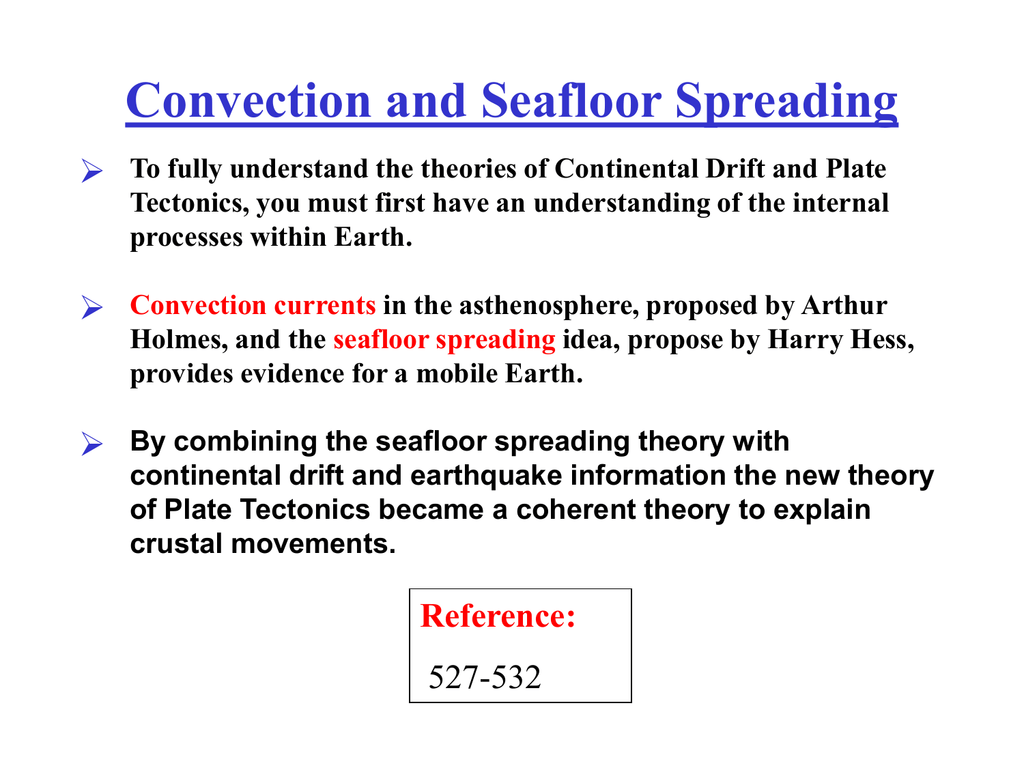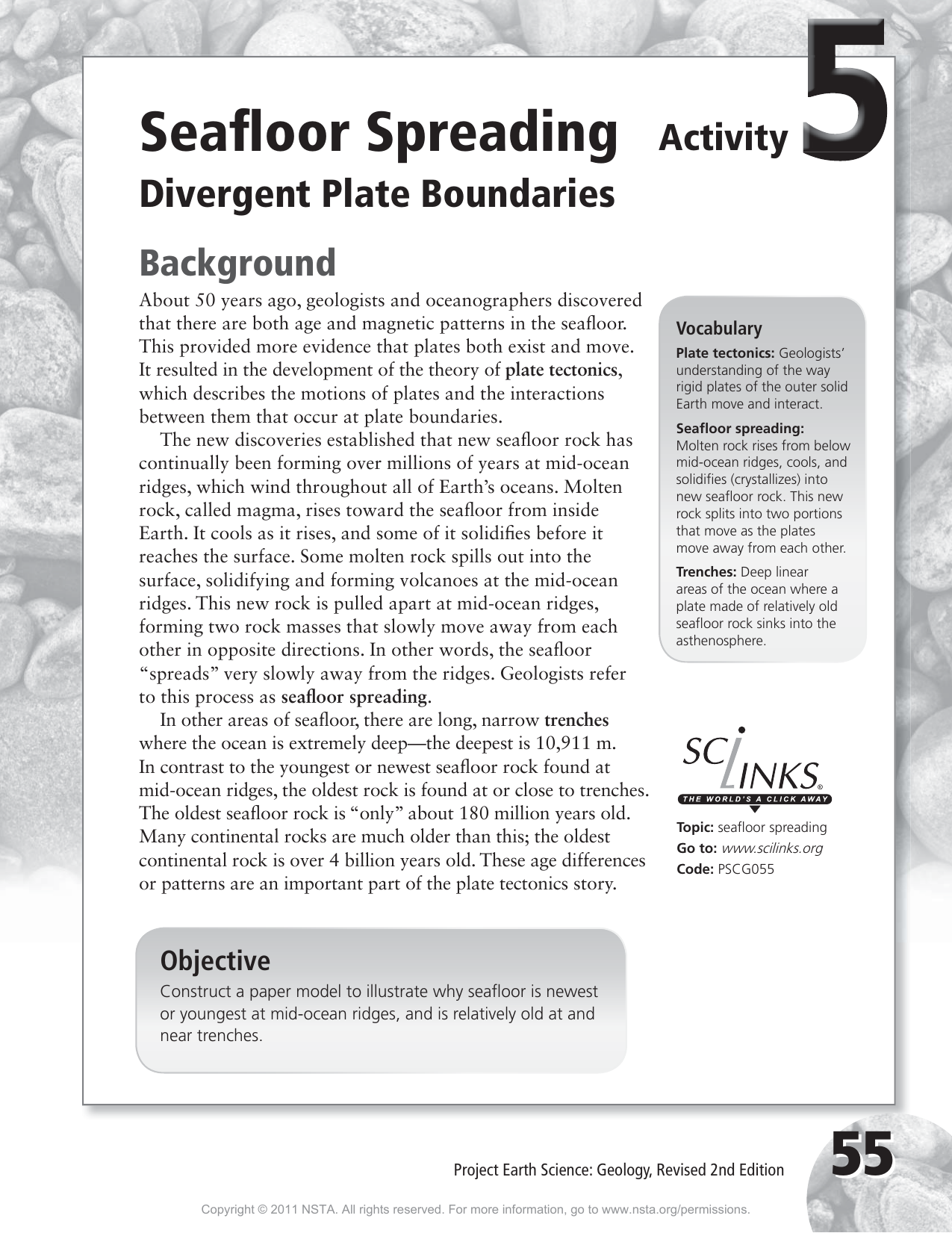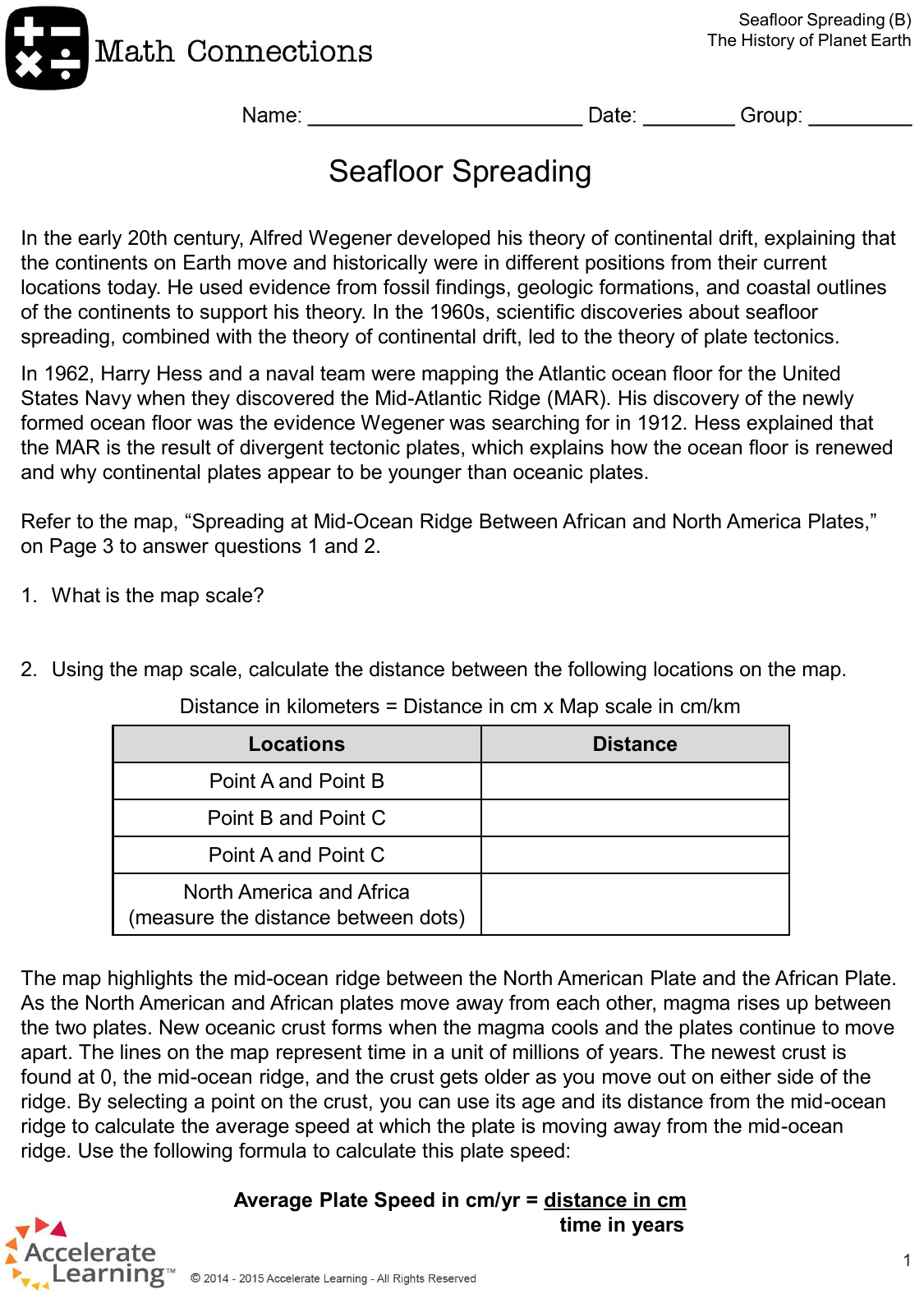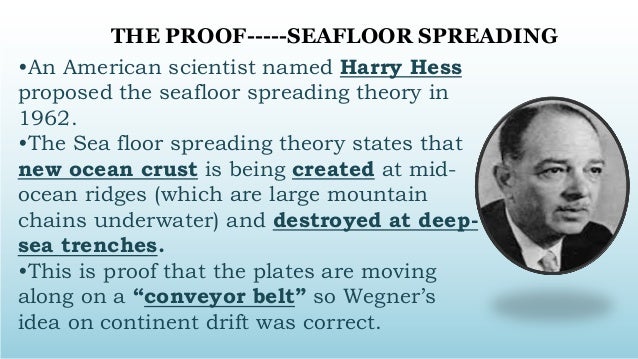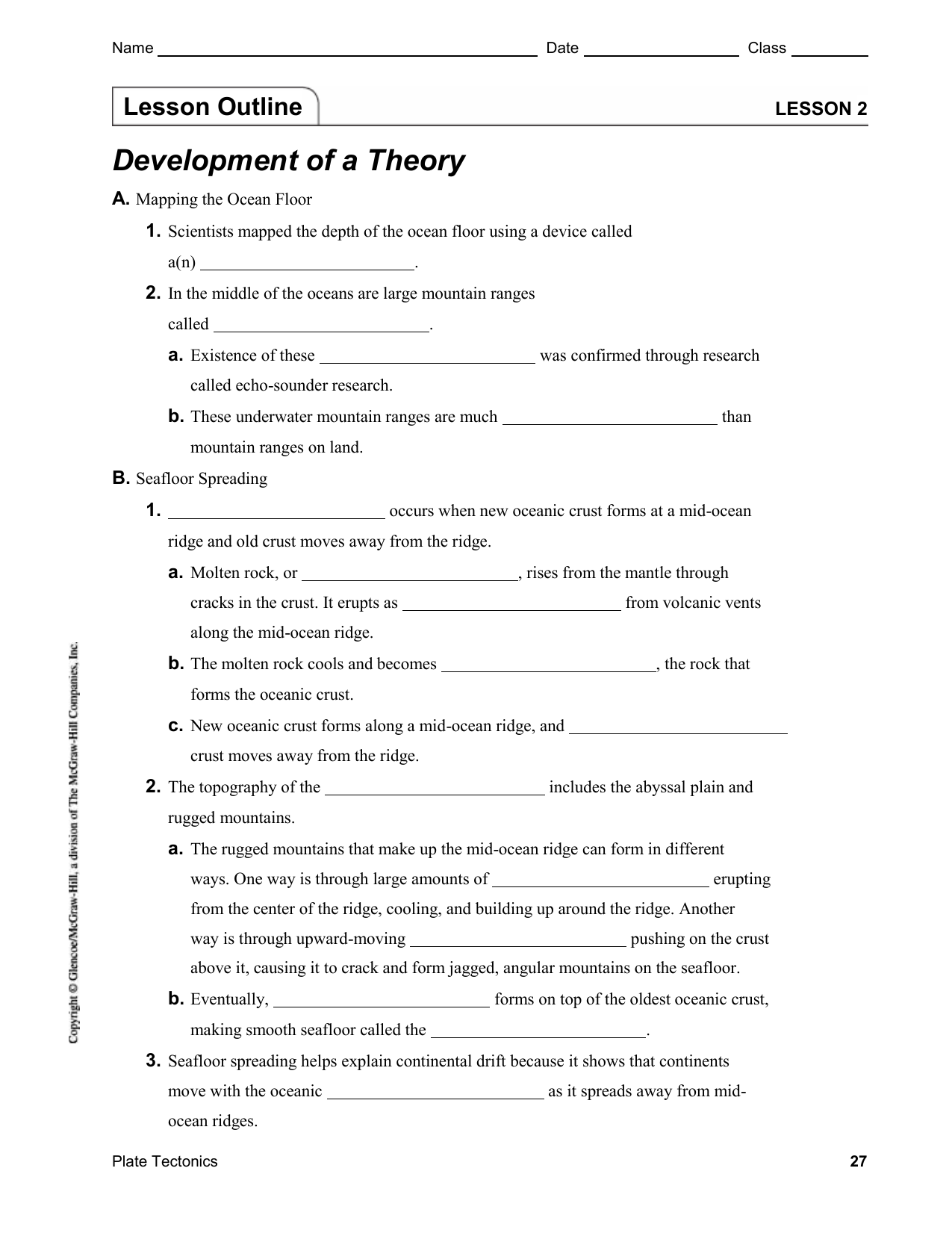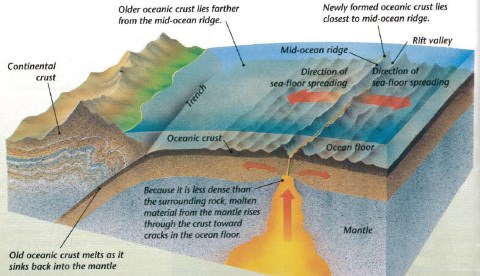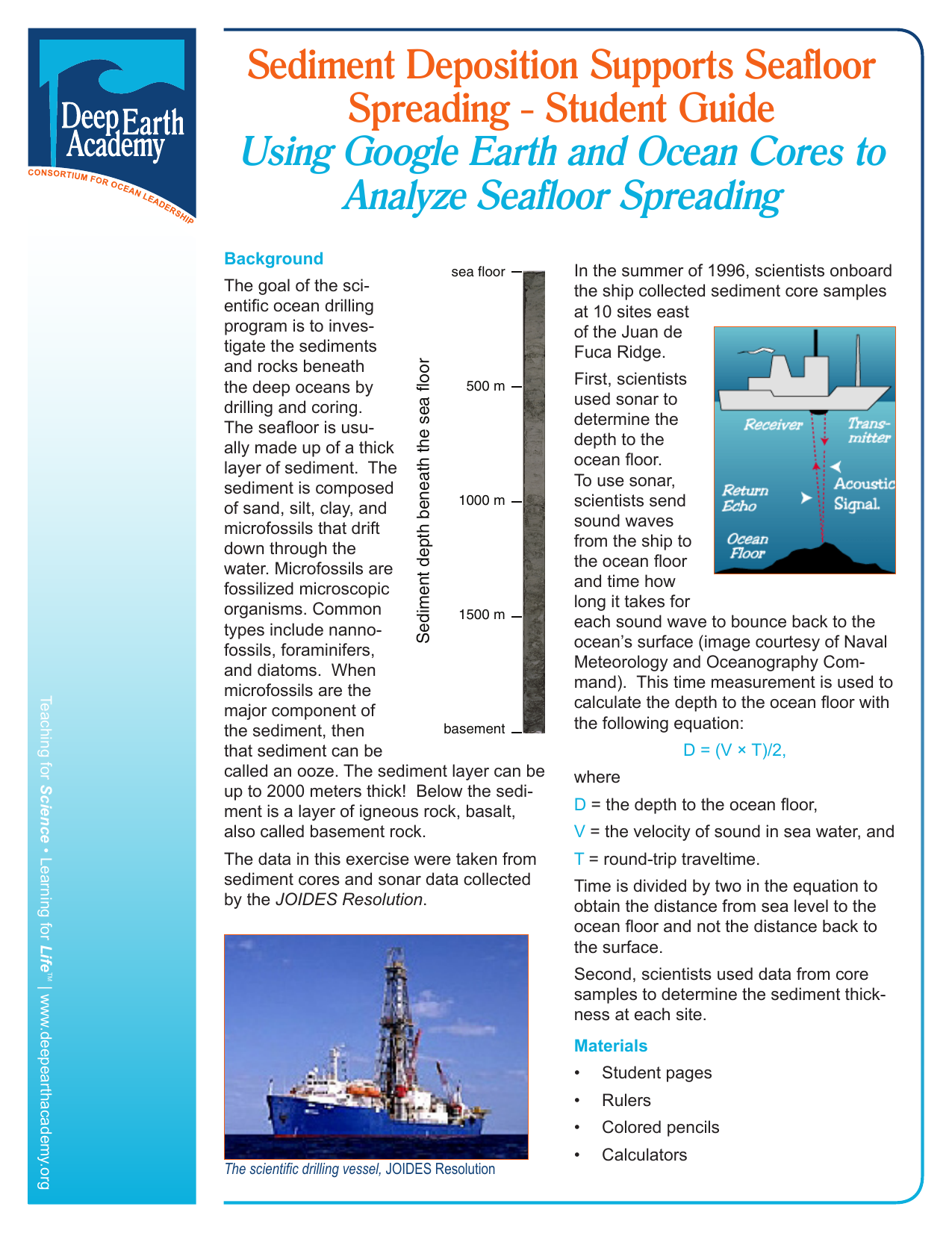In this video we are going to discuss a very important concept of geomorphology that is sea floor spreading theory which is given by harry hess an us navy admiral this theory is given by harry.
Seafloor spreading theory in hindi.
This idea played a pivotal role in the development of the theory of plate tectonics which revolutionized geologic thought during the last quarter of the 20th century.
It leads to the formation of new material on the ridge.
As per seafloor spreading theory the mid oceanic ridge is the region where at the crest of oceanic ridges through the rupture of the oceanic crust and the crack continuous new lava eruption thrusts into it consequently pushing the oceanic crust on either side.
The theory of seafloor spreading the mid ocean ridge is where the seafloor spreading occurs in which tectonic plates large slabs of earth s lithosphere split apart from each other.
3 questions raised after sea floor mapping 4.
Mapping of sea floor in 1950s 3.
The theory of sea floor spreading states that new oceanic crust is being formed continuously at mid oceanic ridges while the older rocks move away from the ridge.
When oceanic plates diverge tensional stress causes fractures to occur in the lithosphere.
The mid atlantic ridge for instance separates the north american plate from the eurasian plate and the south american plate from the african plate the east pacific rise is a mid ocean ridge that runs through the eastern pacific ocean and separates the pacific plate from the north american.
Seafloor spreading occurs along mid ocean ridges large mountain ranges rising from the ocean floor.
Seafloor spreading theory that oceanic crust forms along submarine mountain zones known collectively as the mid ocean ridge system and spreads out laterally away from them.
That is it explains why the age thickness and density of the oceanic crust increases with distance from the mid oceanic ridge.
Beginning of sea floor spreading theory 2.
Seafloor spreading was proposed by an american geophysicist harry h.








